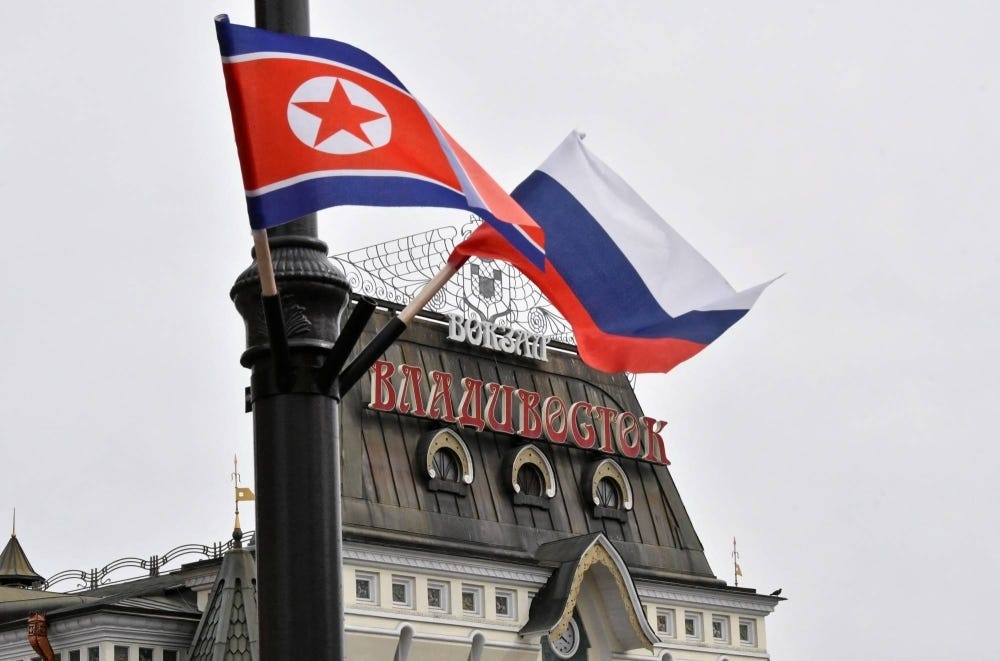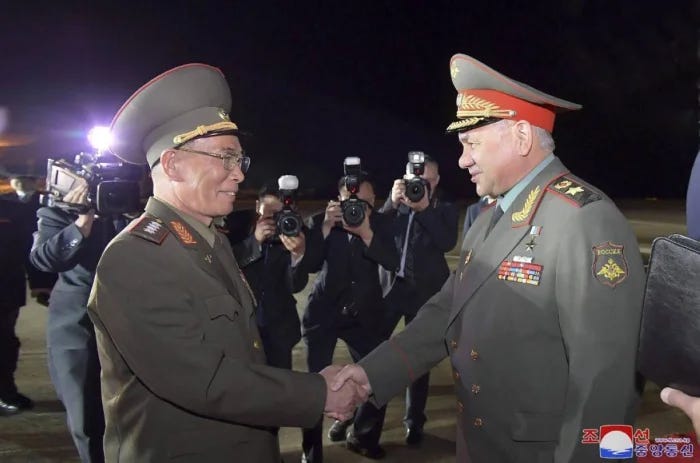70th Armistice Anniversary: Biden's Nuclear Submarine Deployment Poses Challenges for Korean Reunification Efforts
Amidst Commemorations and Diplomatic Complexity, North-South Reunification Faces Hurdles with Biden's Nuclear Submarine Move To South Korea. [North Korea News][News on North Korea]
KOREA: As North Korea marks the 70th anniversary of the armistice that brought a pause to the Korean War, the recent decision by the Biden administration to deploy nuclear-armed submarines to Busan, South Korea, has introduced a new layer of complexity to the challenges surrounding the prospects of unification between the divided Koreas.
Amidst years of pandemic-induced isolation, the 70th anniversary has become an opportunity for North Korea to commemorate its historical struggle against the United States and its allies.
However, the presence of nuclear-armed submarines in South Korean waters adds several fresh elements of concern to the strained relations between the North and South, evidently becoming a cold war clash between the East and the West, impacting the chances of any near-future reunification.

**1. Escalation of Tensions:**
The deployment of nuclear-armed submarines in the region has naturally escalated tensions on the Korean Peninsula. North Korea perceives such moves as a direct threat to its security, as would any country when another positions nukes in its region, potentially leading to heightened military posturing and increased defensive measures from the isolated nation. One has to wonder if the U.S. is also considering prodding the DPRK into a position where they fire off a missile with a target other than open water so it and its allies can have a real perceived cause for a hot war.
**2. Reunification Dialogues Undermined:**
Military tensions threaten the reunification talks between North and South Korea. Is this the hope? After 70 years of continuous poor performance toward peace and reunification, one has to wonder.
**3. Impact on Regional Dynamics:**
The presence of nuclear-armed submarines could have broader implications for regional power dynamics. Considering how China and Russia will respond to the United States' nuclear-armed submarines' presence in the region is essential. The United States' ambition to prevent the DPRK from becoming a nuclear state has enabled it to join China and Russia as a more bonded ally creating a nuclear trifecta in the Far East.
**4. Diverging Priorities:**
The deployment decision highlights the differences in priorities between North and South Korea and their respective allies. While South Korea may perceive the submarines as a security reassurance, North Korea views them as a provocation, further deepening the rift between the two sides and resulting in job security for the military defense sector supplying arms and equipment to the West's militaries.

As the 70th armistice anniversary unfolds, it becomes evident that any hope of near-future unification between North and South Korea faces multifaceted challenges. The Biden administration's decision to deploy nuclear-armed submarines to Busan has added another layer of complexity to an already intricate situation. To foster genuine progress toward reunification, it is vital for all parties involved to exercise restraint, prioritize diplomacy, and engage in constructive dialogue that addresses security concerns and builds mutual trust.
The world continues to watch the 70-year drama on the Korean Peninsula, hoping it does not become a catastrophic tragedy sequel to the Korean War again. However, with rising military tensions, achieving this shared goal will require unprecedented efforts and unwavering commitment from all stakeholders and trying new approaches uncommon to the previous 70 years, such as realigning the U.S. military out of South Korea and removing the DPRK's reason for being a military state in the first place.
